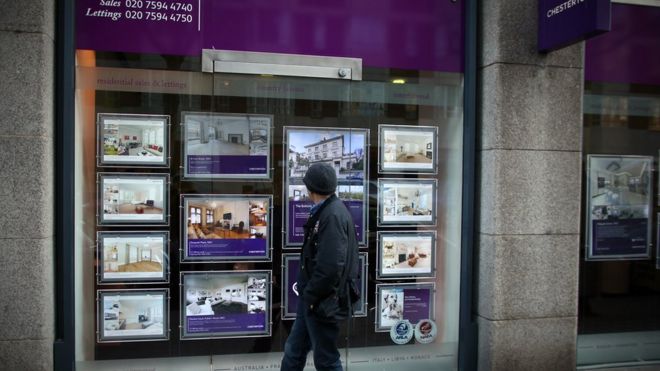
House price growth slowed to 2.1% in August, from 2.9% in July, amid fears Brexit-fuelled inflation is placing pressure on household spending, says the Nationwide.
Property values fell for the first time since May, down 0.1% month-on-month to an average of £210,495.
The number of mortgages approved for house purchases fell to a nine-month low of £65,000 in June.
However, property prices are still predicted to rise by 2% in 2017.
“Wages have been failing to keep up with the cost of living in recent months and consumer sentiment has weakened,” said Robert Gardner, Nationwide’s chief economist.
“In some respects, the slowdown in the housing market is surprising, given the ongoing strength of the labour market.”
In the three months to June, the economy created 125,000 jobs and unemployment fell to 4.4% – the lowest rate for over forty years.
Mortgage rates have also remained close to all-time lows.
Pressure on households
“Ultimately, housing market developments will depend on wider economic performance. The UK economy slowed noticeably in the first half of the year, and there has been little to suggest a significant rebound in the months ahead,” said Mr Gardner.
“While employment growth has remained robust, household budgets are under pressure. This suggests that housing market activity will remain subdued.”
Despite the slowdown in the housing market, Nationwide still expects prices to rise by about 2% overall in 2017, because of a decrease in the supply of new homes coming on to the market.
The building society pointed out that stamp duty land revenues had risen, reaching £12.8bn in the 12 months to mid-2017.
This is well above the £10.6bn peak recorded in late 2007.
The increase has been fuelled by higher house prices, which have risen by 12% since 2007, and by the much higher rates of stamp duty which were introduced on more expensive properties in December 2014.


